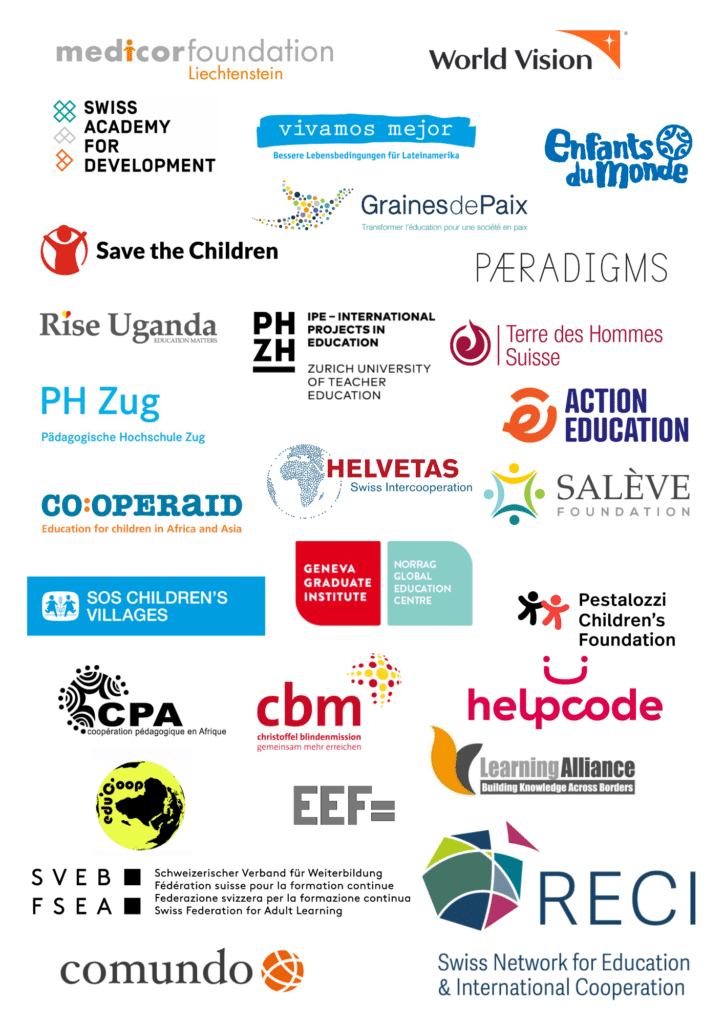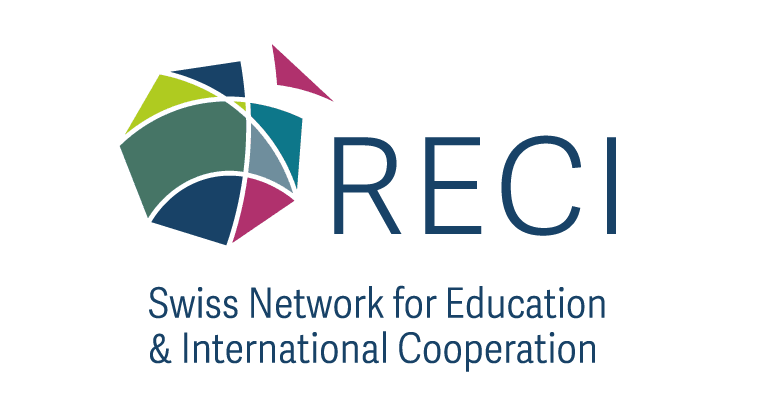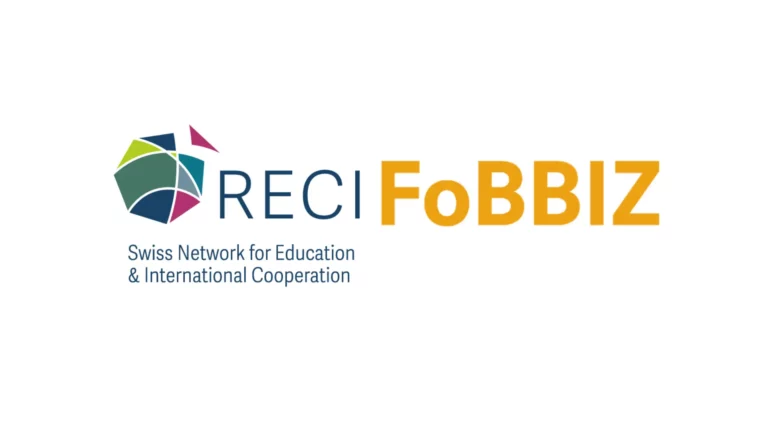Position paper: Protest against the deletion of basic education in the Swiss IC Strategy 2025-2028
RECI is the Swiss network for education and international cooperation. With its 40 members – Swiss non-profit organisations, academic institutions, foundations, and professionals – RECI advocates for the right to quality education and lifelong learning for all people worldwide.
We thank Parliament for its clear commitment to comprehensive funding for education in the debate at the end of last year. This was an encouraging signal that Switzerland continues to focus on effective and sustainable international cooperation as a real investment in human development and global stability and not merely as a symbolic gesture.
However, the Federal Council’s recent decisions, as set out in the press release of 29 January 2025, cause incomprehension and deep concern. With the decision to remove basic education from the international cooperation strategy, Switzerland is undermining the foundations of its own development cooperation.
The decision contradicts recognised principles for effective international cooperation as well as the criteria that SDC has carefully developed with its partners over the past decades.
We call on the Federal Council and the FDFA to comply with Parliament’s directives and to present a coherent strategy that promotes education as a whole, in line with SDG 4, and respects its own principles for effective international cooperation.
Reason for our demand:
The communiqué “International cooperation: FDFA and EAER implement Parliament’s decisions” lists the criteria for the budget cuts as follows:
- Increase efficiency
- Setting priorities with a focus on added value and impact
- Preference for sectors with many years of experience.
However, the abolition of basic education is in blatant contradiction to all these criteria.
Basic education is the basis and prerequisite for vocational education and training and education in emergency situations
The communiqué mentioned above describes basic education as a “sub-topic” of education – a view that misjudges reality. In short, no successful vocational education and training can take place without the corresponding, solid basic education. i.e. basic skills such as reading, writing and arithmetic as well as social skills (for a detailed explanation of the context, we would like to refer to our position paper of 2023).
Likewise, countries without a functioning basic education system are not in a position to guarantee education in crisis situations. Especially in crisis situations, the first focus is ultimately on basic education and education in crisis situations must always refer to the local education systems. The cancellation of basic education corresponds to a radical, absurd amputation, in which an arm and a leg are to be saved by sacrificing vital organs.
Switzerland’s impact, added value and many years of experience
The communiqué argues that Switzerland brings special added value to vocational education and training due to our successful dual education system. However, this success is only possible with the design of basic education that is tailored to vocational education and training. In development cooperation, too, good basic education is a prerequisite for the effectiveness of work in the areas of vocational education and training and education in emergency situations.
As SDC emphasises in its report, thanks to its long-standing commitment to basic education over the past four years, Swiss development cooperation has provided 1.6 million children with a solid basis with which they could start their further education: basic education. This shows impressively that Switzerland’s work in the field of basic education is successful. Indeed, it is the necessary key to make Swiss investments in vocational education and training and education in emergency situations effective.
“Education in Need” – Countering the Global Education Crisis
With the widespread conflicts and in the aftermath of the global pandemic, we must currently speak of a global education crisis, not just “education in emergencies“. According to a UNESCO report from October 2024, 251 million school-age children cannot attend school today. Marginalised groups are disproportionately more affected: girls, children with disabilities, children living in remote areas or from linguistic and ethnic minorities. It is not appropriate for Switzerland to conveniently point out that other actors could ensure basic education.
RECI and its 40 members have committed themselves to opposing this education crisis with all their strength. However, these organisations are also coming under great financial pressure due to the cuts in basic education. There is a great risk that a lot of specialist expertise will lie idle as a result and that institutional and personal networks in Switzerland and worldwide will be irretrievably destroyed.
Commitment to an effective and coherent strategy
We call on all stakeholders, the Parliament, the Federal Council, the FDFA, SDC and civil society to work – in the interests of Switzerland, the Swiss population and the people in our partner countries – to promote a coherent and effective development strategy that uses Switzerland’s many years of experience in the field of education as a whole as an added value.
Basic education as the basis for all social, economic, democratic and peaceful development must remain a central component of Swiss international cooperation. We ask all stakeholders to work with us to ensure that this is realised!
RECI, Swiss Network for Education and International Cooperation
On behalf of the 40 members and the board
Beatrice Schulter
Executive Director
Vicques, 17 February 2025



